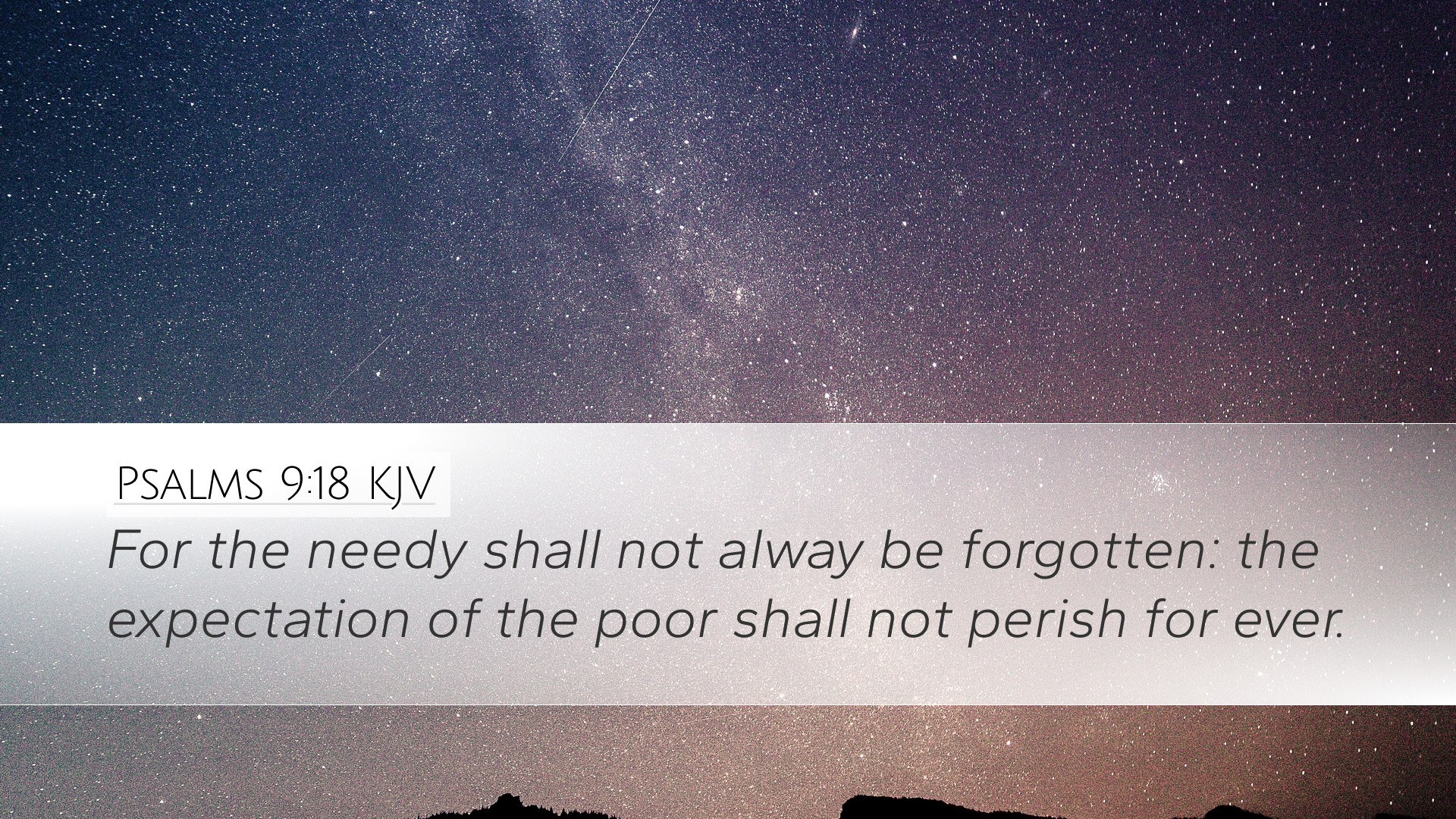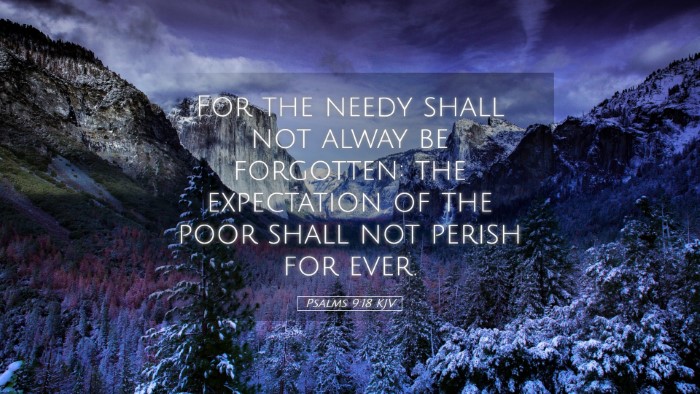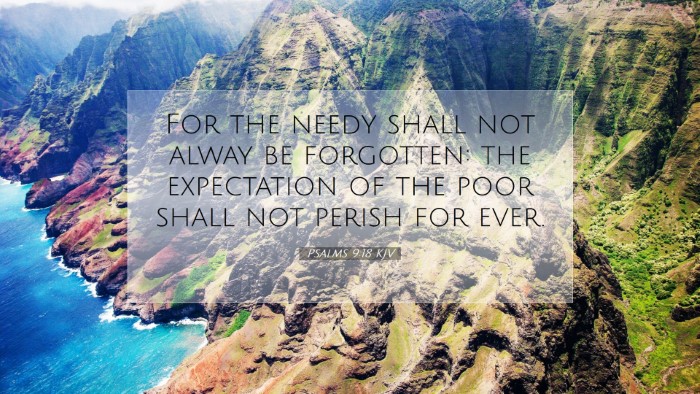Psalms 9:18 Commentary
Verse: Psalms 9:18 - "For the needy shall not always be forgotten: the expectation of the poor shall not perish forever."
Introduction
The ninth chapter of the Psalms is a profound lamentation mixed with a song of praise. In verse 18, we find a powerful assurance regarding the fate of the needy and the poor. This commentary seeks to draw insights from renowned public domain theologians such as Matthew Henry, Albert Barnes, and Adam Clarke to extract a depth of meaning from this single verse, particularly focusing on its implications for ministry, theological reflection, and the Christian's response to social justice.
The Context of Psalm 9
Before delving into the specifics of verse 18, it is crucial to understand its context. The Psalmist, attributed to David, likely wrote this during a time of turmoil or personal distress, proclaiming God's justice against the wicked while expressing hope for the righteous and downtrodden. The verses preceding Psalm 9:18 highlight God's faithfulness and judgment, which form the foundation upon which this promise of verse 18 rests.
Exegesis of Psalms 9:18
Matthew Henry, in his commentary, emphasizes the certainty of God's providence towards the needy. His analysis reveals that "the needy shall not always be forgotten," indicating a transient condition. The phrase portrays hope amid despair, offering a profound truth that the current suffering of the poor is not perpetual.
Albert Barnes elaborates on the term "forgotten," indicating that while it may appear at times that the needy are overlooked, God's attention does not wane. His justice and mercy will ultimately prevail. Barnes notes that this verse is a reminder of God’s ultimate concern for the downtrodden, maintaining a historical and social perspective essential for understanding the evolving nature of societal structures.
Adam Clarke draws attention to the duality of expectation mentioned in this verse. He posits that the "expectation of the poor" embodies a natural yearning for relief and justice. Clarke resonates with the notion that the poor and needy hold tightly to the hope that God will intervene and improve their condition, signifying a theological aspect of hope as a central tenet in their plight.
Theological Reflections
The implications of Psalms 9:18 weigh heavily on both theological interpretations and practical applications within Christian communities. Understanding God's faithfulness to the needy forms a rural backdrop for discussions of social justice and equity within the Church.
- Divine Justice and Mercy: This verse embodies the essence of divine justice; God cannot and will not abandon the needy. It calls upon believers to reflect God's heart towards the marginalized.
- The Role of Christian Community: As stewards of God's justice, the Church is compelled to uphold the plight of the needy, emulating God's promise of eventual salvation and relief.
- Hope as an Anchor: The expectation mentioned in the text offers a rich theology wherein hope is positioned as an anchor for the soul. This hope transcends temporal difficulties, imbuing the faithful with resilience.
Applications for Ministry
For pastors, students, and theologians, engaging with Psalms 9:18 translates into actionable steps within the church community. This verse presents key applications for nurturing faith amidst adversity:
- Advocacy and Action: Encourage congregations to actively advocate for social justice initiatives. Workshops or outreach programs could be developed to serve the needy, thereby living out the promises of scripture.
- Counseling and Support: Provide pastoral care that emphasizes hope for those facing economic hardships, reaffirming that their situation is not forgotten by God.
- Educational Discourses: Host educational classes focusing on the theological implications of justice, mercy, and support for the poor, fostering a deeper understanding among church members.
Conclusion
Psalms 9:18 serves as a poignant reminder of God's unwavering attention to the needy and the importance of hope in times of despair. By referencing the insights of Matthew Henry, Albert Barnes, and Adam Clarke, we gain a multifaceted understanding of this verse. As past and present church leaders, it is imperative to translate this scripture into action, emphasizing God's justice and mercy within our ministries. This undertaking not only enriches theological understanding but strengthens the church's role as a beacon of hope in a fractured world.


